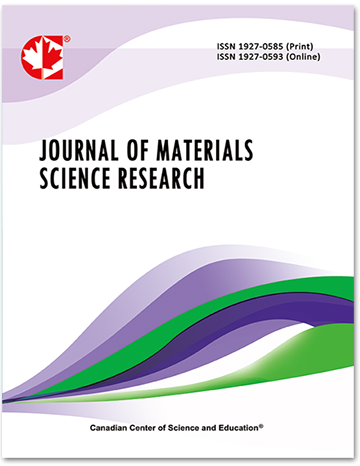Preparation and Characterization of Carboxymethyl Cellulose Films with Embedded Essential Oils
- Atanu Biswas
- Roselayne Ferro Furtado
- Maria do Socorro Rocha Bastos
- Selene D. Benevides
- Marilia de Albuquerque Oliveira
- Veera Boddu
- H. N. Cheng
Abstract
There is current interest in using biobased materials to produce food packaging that can increase the shelf-lives of fruits and vegetables and minimize food spoilage in supermarkets and at the same time not generating plastic waste that causes long-term disposal problems. A good candidate for such materials is the polysaccharide, such as carboxymethyl cellulose (CMC), which is edible and biodegradable. In this work films were produced from two CMC materials with different degrees of substitution (DS) that encapsulated four different essential oils (eugenol, rosemary oil, coriander oil, and nutmeg oil) that are known to have beneficial properties for food applications. The mechanical properties, opacity, and water vapor permeation were evaluated. In general, the essential oil-embedded CMC with the two DS values behaved rather differently. In particular, the essential oil-embedded CMC with 0.7 DS degree of substitution gave stronger and more flexible films and may be more suited for use in food packaging.- Full Text:
 PDF
PDF
- DOI:10.5539/jmsr.v7n4p16
Journal Metrics
Impact Factor 2022 (by WJCI): 0.583
Google-based Impact Factor (2021): 0.52
h-index (December 2021): 22
i10-index (December 2021): 74
h5-index (December 2021): N/A
h5-median (December 2021): N/A
Index
- CAS (American Chemical Society)
- CNKI Scholar
- Elektronische Zeitschriftenbibliothek (EZB)
- EuroPub Database
- Excellence in Research for Australia (ERA)
- Google Scholar
- Infotrieve
- JournalTOCs
- LOCKSS
- NewJour
- PKP Open Archives Harvester
- Qualis/CAPES
- SHERPA/RoMEO
- Standard Periodical Directory
- Universe Digital Library
- WJCI Report
- WorldCat
Contact
- John MartinEditorial Assistant
- jmsr@ccsenet.org
